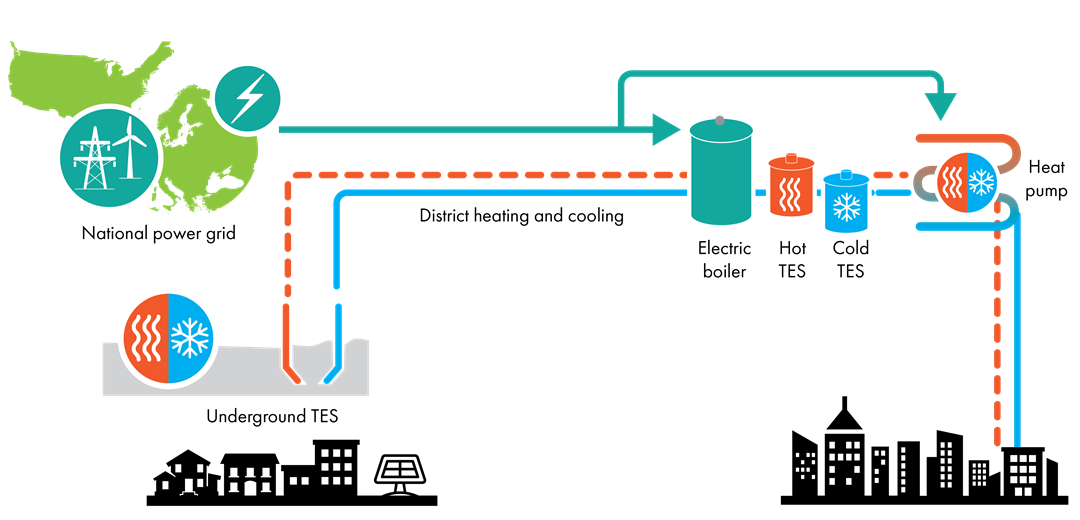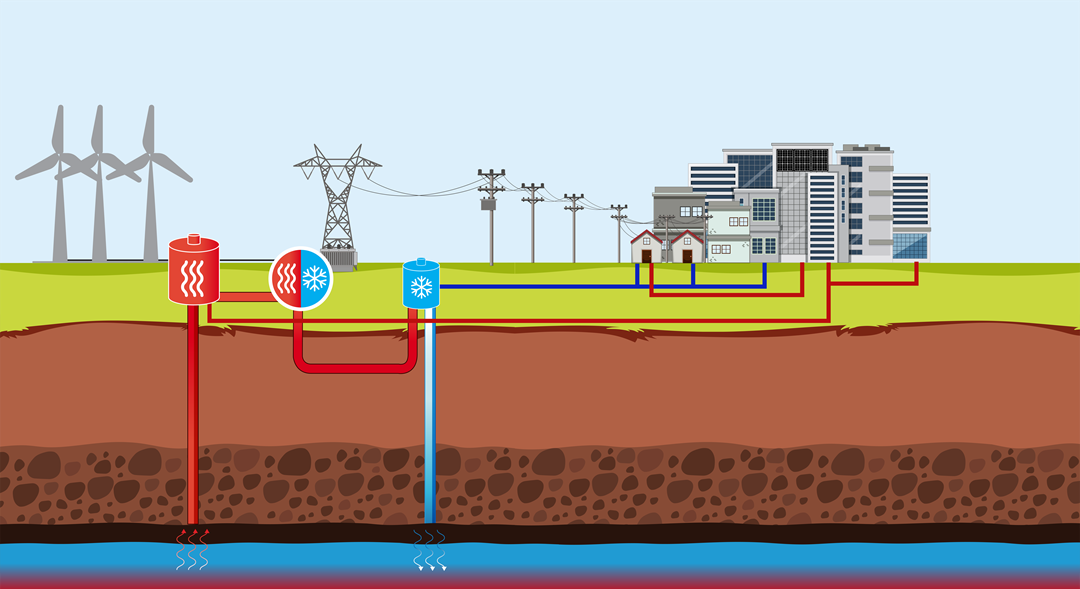Half of the global energy demand is connected to heating and cooling, and it is thus urgent to reduce emissions in this sector. The easiest way to decarbonization of heating is replacing fossil-based boilers with heat pumps, and this will also connect the heating needs with the electricity grid.

Simultaneously with decarbonisation of the heating sector, a significant degree of end-user flexibility will be required to enable the increased share of variable renewable energy sources in the power grid. A district energy system at neighbourhood or city level supplied by heat pumps powered with renewable electricity can contribute to the required flexibility, and this flexibility can be increased significantly with the use of thermal energy storage. This is called sector coupling: smart interaction between the power grid and district energy systems through large-scale heat pumps connected to thermal energy storage for flexible production of heat and cold. Such interaction can create a robust and flexible energy system in a more cost-effective and environmentally friendly way than an extensive use of electric batteries.
FLXenabler will look at the transition to fossil-free heating and the flexibility this can provide when combining heat pumps with thermal storage, from local energy communities to national and continental scale. In addition to short-term heat storage such as hot water tanks, the project will look at the potential of geothermal resources and underground thermal energy storage in reaching the future decarbonisation targets. The hypothesis is that by using flexibility in the thermal systems, the transition to a fossil-free energy system can take place faster, at a lower cost, and with a lower environmental footprint.
FLXenabler is a collaborative project with partners from Norway, Austria and the USA. The project will apply energy system models from neighbourhood level to national scale and link these together to demonstrate how sector coupling via the integration of heat pumps with surface and underground thermal energy storage can accelerate and reduce the costs of the transition to a fossil-free energy system in Europe and the USA.

